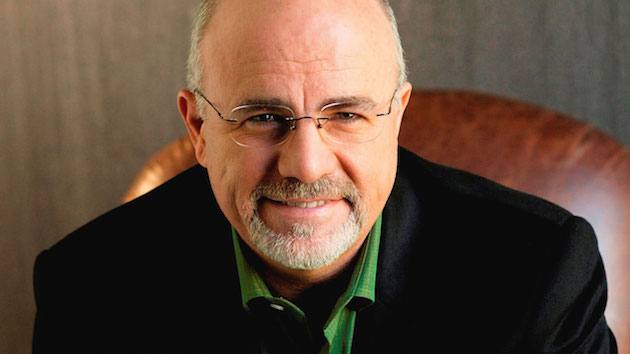Dave Says – It’s Baby Step 1 for a reason

Need some financial advice? Debt and Income Crisis? Pay off the house first? Check cashing? Taxes? Check out what folks are asking Dave Ramsey.
Dear Dave,
I’ll be receiving my income tax refund soon. It will be enough to completely pay off my two smallest debts, or get my starter emergency fund of $1,000 for Baby Step 1 in place. What should I do?
Brandy
Dear Brandy,
I love that you’re excited about using your refund to start the Baby Steps, and begin gaining control of your finances. But we call the beginner’s emergency fund Baby Step 1 for a reason.
Bad things can happen while you’re working to get out of debt. That’s why I want people to get a little money set aside before they start Baby Step 2, which is the debt snowball. What if the alternator on your car goes out, or your refrigerator dies? Life happens, and things go wrong. When this kind of stuff pops up, and you don’t have any money set aside, you’re likely to quit the plan and wind up going even deeper into debt.
I know you want to get out of debt. I want you to get out of debt, too. But I want you to stick with the plan, and actually get out of debt, instead of falling off the wagon the first time you hit a bump in the road!
—Dave
Take care of the basics
Dear Dave,
I just graduated from college, and I’ll be starting my first real job soon. What can young adults, who are just getting started, do to avoid money problems now and in the future?
Ben
Dear Ben,
Congratulations! I’m glad you realize the importance of being responsible with your money and planning for things down the road.
There are three or four important things a recent college graduate — or anyone, really — can do to make the most of their money and protect themselves financially. The first is to always live on budget. When you write down a budget on paper, and give every dollar a name before the month begins, it helps you know what your money is doing instead of leaving you in a situation where you’re wondering where it went.
Two more important practices are saving money and staying out of debt. Your income is your biggest wealth-building tool. When you’re saddled with debt, your money goes to creditors instead of into your pocket. Saving money prepares you for all the things life will throw at you — both good and bad.
One more thing I’d include is investing. I know you’re young, but you still need to think about life after retirement. If you start investing just a little bit each month now in good mutual funds, you could easily retire a millionaire.
These are all very simple, basic things, Ben. But they’ll make a huge difference in your financial situation now and in the years to come!
—Dave
Creativity is the key
Dear Dave,
How do you have a wedding without debt?
Brooklyn
Dear Brooklyn,
It’s pretty simple. To have a wedding without debt you must be creative and think within your budget. In other words, you pay for a wedding with the money you have.
There’s absolutely nothing wrong with a small, inexpensive wedding. Once you realize and understand that fact, and start thinking about things with a budget in mind, you’ll realize you can scrimp and save and still have a great small wedding. Lots of people have beautiful ceremonies, and even small receptions, for well under $1,000.
Sure, you can go into debt by renting the fanciest venue, and buying a $9,000 wedding dress to wear for just a few hours on one day. Or, you can realize it’s not the place and the clothes that make a wedding special. What about an outdoor wedding at a friend or family member’s house? When it comes to a dress you can opt for something simple and inexpensive, or even one that has been worn once, for just a few hundred dollars. If you think that’s awful, let me tell you something that’s worse — going tens of thousands of dollars into debt for an event that lasts just a few hours!
Most people don’t have lavish, expensive weddings, and guess what? Years down the road they’re still happily married, very much in love, and they look back on their wedding as the best day of their lives.
—Dave
No obligation here
Dear Dave,
My father died recently. He walked out of my life 25 years ago when I was a teenager, and he never wanted anything to do with me after that. His brothers, who have already paid for some of his final expenses, asked if I wanted to pay to have his body cremated. They didn’t ask for money, they just offered it as a chance to be part of things. I’m in good shape financially, and I could easily afford the cost. Morally, I wonder if I have a responsibility to help with things. Do you feel I’m obligated in any way?
Julie
Dear Julie,
I’m sorry for your loss. I’m sorry, too, about what happened with your father. I can’t imagine the mixed emotions you must have in your heart.
When someone asks me a question like this, I try to put myself in their shoes. Under the circumstances, I don’t think you have any obligation whatsoever — morally or legally — to help pay for anything. If you want to help, and you can afford to do so, then follow your heart. At the same time, I don’t think you should lose one wink of sleep over this if you decide not to contribute.
Twenty-five years is long, long time. I don’t know your dad, and I have no clue about his situation or state of mind back then and in the time since. I can’t imagine doing that to a child of any age, though.
Do what you feel in your heart is best. But in my opinion, there’s no obligation here. God bless you, Julie.
—Dave
- Dave Ramsey is CEO of Ramsey Solutions. He has authored seven best-selling books, including The Total Money Makeover. The Dave Ramsey Show is heard by more than 13 million listeners each week on 585 radio stations and multiple digital platforms. Follow Dave on the web at daveramsey.com and on Twitter at @DaveRamsey.
Dave Says: Expenses, Not Income







